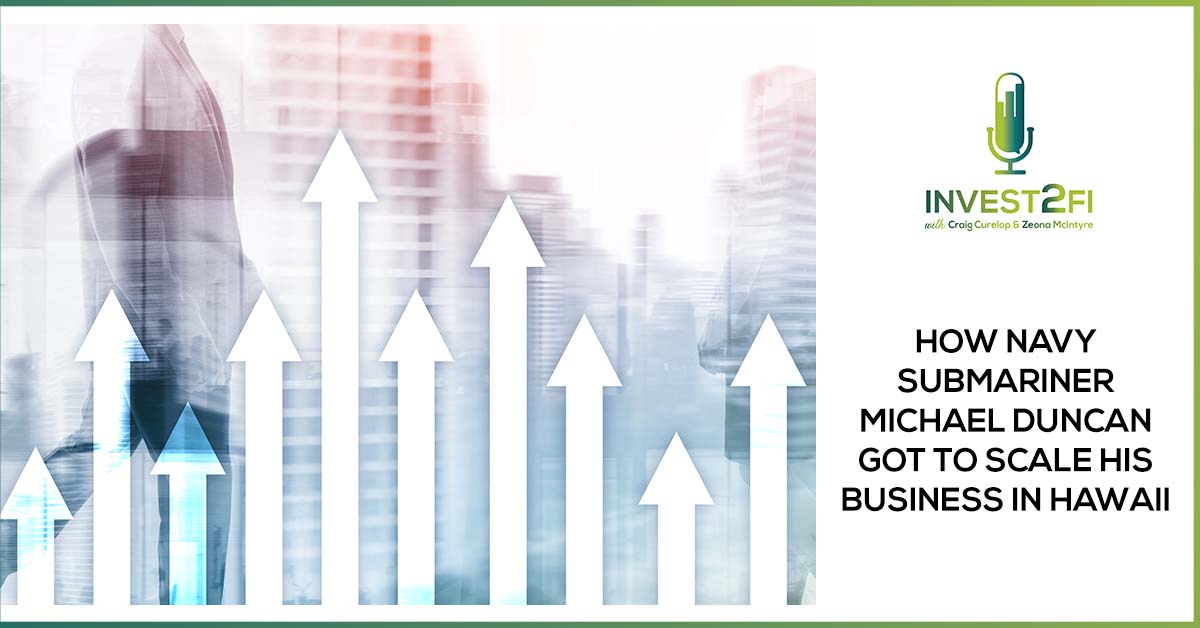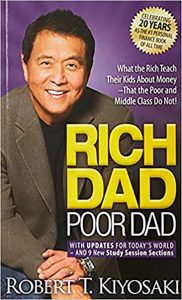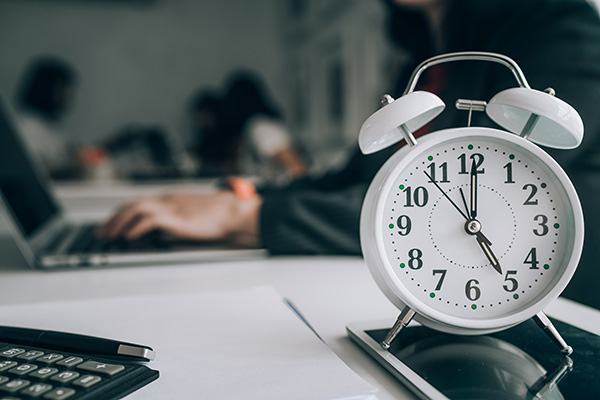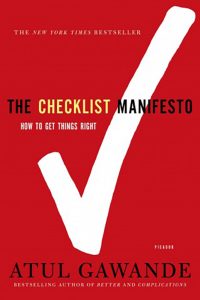
Today’s guest unexpectedly took the path to real estate. Michael Duncan was living in Hawaii when he moved out then rented it to his buddy – making it his first cashflow property. Realizing the power of real estate, he has bought rentals, a condo in Hawaii, and even his parents’ household – and he’s just getting started!
In this episode, listen to Michael as he shares about how he got it down with house hacking his first deal. He’ll also open up about his mistakes like how hiring the property manager became a disaster for him (and how he took matters into his own hands).
Want to take the first step in real estate? Get inspired by Michael’s story with how he was able to gain real estate knowledge and developed his mindset in financial independence! Enjoy!
—
Listen to the podcast here
How Navy Submariner Michael Duncan Got To Scale His Business In Hawaii
I’m here with my buddy, Nick Monge. How are you doing?
I am doing wonderful. How about you?
I am doing good. I have been working on this van conversion thing. That has been taking up a lot of my time and I’m getting a little bit handier because of it. I have put up all the electrical and we’ve got power. I’m working on putting up the walls and it’s getting pretty frustrating. I might hire out the rest of it because I’m a wimp and not handy. It’s probably not a good use of my time but I do enjoy doing it. We will see how that goes. How about you?
I’m doing the stay-at-home dad thing.
It’s a good life.
It’s not bad. My wife takes care of me. She goes to work. I just have to sit here and clean up a little bit.
We have a pretty cool show. His name is Michael Duncan. He’s out in Hawaii. He’s in the Navy and he knew about house hacking but he didn’t know about house hacking. He stumbled into a couple of house hacks that are working okay for him. He bought a $500,000 condo in Hawaii when he was 22 years old. He lived in it and had his buddy renting out and paying half the mortgage. He moved out and his buddy paid most of the mortgage.
It became a cashflowing property for him but it appreciated pretty significantly over time as well, and because he saw that power in real estate, he then parlayed that into another house hack condo in Hawaii as well as bought the house his parents lived in back in Michigan. He’s in the earlier stages of financial independence but he’s on the right track. He’s got a couple of hundred dollars of passive income coming in and he’s well on his way.
I remember when I first met Michael, I don’t remember how exactly it happened but he was the person that invited me to the downtown REIA Meetup. It was pretty cool. I met up with him the very first time at that meetup. He gave me the ticket out in the parking lot, we went inside, and we have been good friends since. I’m happy he has been able to get on. He has an awesome story and good information to pass on to everybody.
It’s a good show. I hope you all enjoy it. Let’s bring him on.
—
Welcome to the show, Michael. How are you doing?
I’m good. How are you?
I’m doing good. Thanks so much for coming on.
Thanks for having me. This is awesome.
Never lose sight of what's going to make you happy in the end. Keep striving towards that. Eventually, you will get it. Share on XYou and Nick know each other. You’re based in Hawaii.
I’m active duty Navy up here in Hawaii. I’ve been here for years. I spent five years on a submarine here and then I’m into my shore duty now. I’ve been out here in Hawaii for a while. I’m loving it.
You spent five consecutive years on a submarine.
I was attached to the submarine for five years. I wasn’t on it every second of that five years but it felt like it.
Do you see things that you wouldn’t normally see? I’m doing the sea life that you see.
There are no windows on the sub, so we can’t see anything but we have the sonar so you can hear whales, dolphins, fish and stuff like that through the sonar. That part is pretty cool.
Let’s chat about financial independence. How did you find out about financial independence? What prompted you to want to seek it?
It’s a weird way into it. Once I started talking to other people that have been in financial independence for a while, it seemed pretty similar to their stories. I was stationed out here back in 2015. I was living in a house. Once you start getting big or basic allowance for housing for being in the Navy, once you reach E-5, the Navy starts giving you money every month to move off base. I got together with a bunch of buddies. We went in together and rented this three-bedroom house. Our rent was super cheap, so we thought that was awesome. We kept adding more people to the house. Before we knew it, we had 8 or 9 people living in this three-bedroom house and it was ridiculous.
Eventually, some people had to move out. They were getting out of the military transfer. It started to fall apart. One of my buddies was leaving. He had this box of books and he said, “Do you want any of these books before I take them? You can dig through them.” I wasn’t a big reader at the time. I was like, “Let me look through this one book that caught my eye.” It turned out to be Rich Dad Poor Dad, which I know is the catalyst for every real estate investor. I don’t know why but it happens like that.
I picked that book up, gave it a read, and it changed my whole perspective on my money and my thought process on what I’m doing with my life and where my money is going. Am I collecting assets or liabilities? It prompted me to, instead of moving into another rental, decide to purchase a house out here in Hawaii with my VA loan. I got connected with an awesome realtor who walked me through it and showed me every step of the way. That was the journey for me. Ever since then, that has constantly been in my mind. Is this purchase going to make me money or cost me money? That has been my journey ever since.
How old were you when you read Rich Dad Poor Dad?
I was 22.
How long after until you bought your first house hack? Was it a house hack?
It turned into a house hack but it was a three-bedroom townhouse that I ended up having a buddy move into. He rented out half the house. It wasn’t intentionally a house hack but it turned into it before I knew what house hacking was.
You did the strategy before there was a term.
It was before I even knew. That was about six months after I read that book.

Let’s get into that for the real deal, which is the deal that makes you the real investor. It’s your first deal.
At that point, I didn’t consider myself an investor but I sat down, looked at where my money was going, and I realized I was giving my money to landlords. I thought, “It looks like houses are appreciating in Hawaii.” This was back before I knew, “Cashflow is king. Don’t bank on an appreciation.” Every year, it’s appreciating about 3%. I was like, “That’s pretty crazy. If I could get a $500,000 house and appreciate 3% every year, I can’t even come close to that with stocks and a bank account. $500,000 appreciating over time compounds like crazy.”
That was my mindset. I went in and found a house. They wanted $475,000 for it. The market was insane at that time, so every house had multiple offers. We ended up having to go on at $485,000 with 0% down. The lender covered all my closing costs. I ended up getting the money back at the end of the closing. To me, it was insane. I had the first month or two with no mortgage payments. It was a miracle to me.
I thought it was the craziest thing, “Here I am at 22 in this $500,000 house.” I contacted one of my buddies. He was like, “I’m looking for a place to live.” I said, “Come rent with me.” I rented a bedroom out to him for $1,500. That was about half of my mortgage and HOA Insurance. Everything covered that. That got my wheels turning. I was like, “I could make some money doing this and profit from this. Not only is the house going to appreciate, but now I can rent it out.” From there, I ended up purchasing two more properties that turned into rentals. That’s the start of it.
Is this in Hawaii?
Yes.
You bought a condo in Hawaii for $485,000. You put less than 0% down because you exercised that VA loan. Is this a part of the GI Bill? Is it wrapped into that or is that something different?
It’s separate from the GI Bill and there are a lot of different ways you could be eligible for the VA loan even if you’re a Reservist or National Guard. It’s 90 days in the military. At the time, you can be eligible for that VA loan.
You clearly more than satisfied that requirement. You got that VA loan at 22 years old, bought this $500,000 property, and rented it. You’re paying $1,500 a month and you didn’t know what house hacking was, you didn’t run the numbers, and you didn’t know what you were doing but I’m sure it still has paid dividends for you. What happened to that house after you moved out? Were you there for a year? What happened with it?
I lived there for about a year with my buddy. He was in the process of getting married and he wanted to bring his wife out. I offered it to them, “If you want to rent out the whole house, I’ll increase the market rent, move out, and go crash with my other buddies.” We did that. He moved into the house and rented it for about a year while I bounced around, living in a room with another buddy and making some good cash. I thought it was awesome. That’s what prompted me to purchase another house out here in Hawaii.
Were you managing that yourself?
Yes. I did self-manage for a while and then we ended up going on a deployment. I ended up getting a property manager for the time I was on deployment and it ended up being a disaster for me. The house was empty for about four months. The yard got crazy, nobody mowed the lawn, and it was terrible. I came back from deployment to a much worse situation. There’s zero money in my bank account. I fired that guy immediately and took back over self-managing and got someone in there within 2 or 3 days. There are tons of renters here. It’s not that difficult. I’m not too sure what happened with that.
What did you rent the house out to your buddy for?
That was $2,600 or $2,700 a month.
You still were paying a little bit towards the mortgage.
By becoming financially independent and financially free, you're open up to do whatever you want to do. Share on XI was breaking even at that point.
You were breaking even and then you left. What did your next one look like after that?
It didn’t mean to be an investment either. I’m from Northern Michigan and there was an opportunity. My parents were moving out of the house that I grew up in and moving into a different house. They offered the house I grew up in for me to purchase. I purchased that and immediately threw some renters in there. I’m getting ready to list that one for sale. That was years ago that we got renters in there. The renters are out now and we’re getting ready to put that up for sale.
Did your parents give you the family discount?
They did. That was a good deal for me.
What did that look like? What were the numbers on it?
That’s a 3-bedroom, 1-bath with a 2-car garage sitting on a half-acre. I was able to get that for $75,000. I did minimal work to it and got some renters in there. They signed a three-year lease, which at the time, I thought was awesome. I thought the longer the lease, the better and the more protection. I ended up giving them a discount on the rent. I rented it to them for $800 a month, which still put $200 or $250 in my pocket. I was stoked with it after renting out houses in Hawaii. That was crazy to me. I could have gotten a little bit more if I was giving year-to-year leases but the three-year was a lot of safety for me. I ended up doing that and now we’re getting ready to list it. We’re going to list it for $125,000 after this three-year.
You buy it for $75,000 and you get $250 a month for three years. That’s $9,000 in cashflow over three years and now you’re making another $50,000 on the sale. What are you going to do with that money? Is that all parlaying into the next thing?
That’s what we’re trying to decide. I’m looking into the 1031 exchange to see what exchange property we could get. Work has been pretty crazy, so I’ve been limited on my time to investigate that. I’m not sure where the next one will be.
You briefly talked about your property manager debacle. We should dig in a little bit deeper there because we want to understand what you did wrong and how you can go about not making that mistake again. You went off for deployment. When you’re in deployment, you don’t have much communication. It sounds like the property manager took advantage of that. He didn’t collect the fee from you because no one was even paying rent.
I don’t even know what the financial incentive was for him to do that. If I were to do it over, I would have done a little more research into the quality of the manager. I know that there are so many more resources with BiggerPockets and other websites that you can find credible and well-working property managers. I would have dug in a little deeper on that.
Did you go with the first guy you met?
I went on Google. I called up the first guy I saw, told him he was hired and gave him the keys a couple of days before we left on deployment. It was all last minute, so it was a condensed timeline. It was first come, first served on that one.
It’s always difficult to do that. When you don’t have time, you lose your flexibility and you got to go with the first option even if it’s not the best option. It’s always good to be able to be patient if you can.
I’m happy now from learning. It was crappy at the time but it taught me a lesson on vetting your people, what can go wrong, and how quickly it can mess with your whole plan.

If I can get your timeline right, you’re 22 and you’re reading Rich Dad Poor Dad. A few months later, you buy that property in Hawaii. You lived there for a year with a buddy and then you moved out. Your buddy runs the whole thing and then you get deployed. The property management comes in and sucks it all up. Is there some time in between then and when you bought your parents’ house?
It was around the end of 2016 when I bought my parents’ house. We got renters in there about early 2017 because the renters get moved out on the three-year lease. That timeline makes sense to me.
They moved out and now you’re figuring out what to do with the extra money.
I did end up purchasing one more with my VA loan. It was the middle of 2018. I bought one more with my VA loan out here that we moved into for a while.
What did that one look like?
I should preface that it’s difficult to find a house in Hawaii that you can purchase with your VA loan, 0% down, and still be able to rent it for a profit or even close to paying off your mortgage and HOA fees. I’m sure Nick can attest to that. I was on the MLS one day and came across this condo up in Wahiawa right across from the Army base. It was listed for $235,000, which I thought was a pretty good deal. The pictures looked awesome. I started an open house, went to take a look at it, and fell in love with the house. It was awesome.
There are super high ceilings. It’s on the top floor. It’s a nicely redone condo. We did some numbers, figured out we could purchase it, and ended up going to contract for $232,000. I lived in that one for a while and then thought, “Let’s move out, rent this thing out, and see what we can rent it for.” We ended up renting it for $1,900 or $1,950. My monthly payment for the mortgage and the HOA was only around $1,700. I was able to cashflow a little bit on that one.
It was a basic new build. How did you get that for $232,000? For Hawaii, that’s extremely low for a high-end condo.
I wouldn’t call it a high-end condo. The area and the building itself were a little bit rundown, but somebody had come through and fixed this unit up to make it nice. I saw a turnaround in the building and the management and I trusted that they were going to turn the building around. It has done pretty well but we’re turning that around and it’s becoming a little more desirable spot. It’s right across the street from the Army base. They get Army renters in there. They love it. That’s a two-minute drive to work for them.
I got a quick question for you because I almost bought a unit on the sixth floor of that same building. I’m curious as to how that unit has been appreciated since you bought it.
I haven’t looked super hard into what it would be valued at now but we’re thinking it’s somewhere around $250,000 to $260,000. There hadn’t been one that sold that found the top floor with high ceilings like that. That’s around what the other two bedrooms are selling for in there. We could get it a little higher but with the numbers, that’s where we’re at.
That’s 10%. That’s not horrible.
It’s not too bad for sure.
How much passive income do you have?
Now that the rental is gone, I’m sitting at about $200 to $300 a month in passive income. That’s well short of my goal but I see the light and this method of doing it. It’s rinse and repeat.

What’s the plan, your goal, and your number?
My number looks like about $5,000 a month in passive income. That would satisfy all expenses and allow me to live freely. My ultimate goal is to enjoy every day, do what I love to do, and have my passive income cover that so that I don’t have to work if I don’t want to. I’m also a real estate agent here and I love to teach about the VA loan and get people started with purchasing their homes and in real estate. I want to continue to do that. I love doing that but I would also love the passive income to allow me to not have to make any sales if I don’t want to and allow me to truly dive into everyone’s situation to the level that they deserve and not have to think about the paycheck at the end of the day to give them my full attention and care. That’s my goal for now.
If you can continue to live frugally, then that’s the biggest thing. It’s being frugal. Make as much money as you can, invest that difference wisely, and you will achieve financial independence much quicker than you have ever imagined.
The plan is to continue to do real estate transactions and go forward with the military. I’m getting out of the military in 2021. There are many real estate transactions building up my experience. That way, once I get out of the military, I could transition fully into being an agent. We live below our means as much as we can and any extra money goes straight towards investments that are going to pay over time. Once we reach the $5,000, that’s the day that we’re all looking forward to.
Are you going to be staying there in Hawaii or going to Michigan again?
The plan is to stay in Hawaii as long as it makes sense. I don’t know where we would go after that. After you live in the Hawaii weather for so long, it’s hard to imagine going back to the cold. I don’t know where the future takes us but as of now, Hawaii is our home. I’m planning to stay here as long as it makes sense.
It makes sense to me. Thanks for coming to the show. We can get into the final four.
You got into reading more. Is there a book that you’re reading?
I finished a book called The Checklist Manifesto by Atul Gawande. It was a book that changed my perspective on planning and checklists in general. I thought of checklists as a regular tool that could help you get more done but I didn’t realize the type of complexity that you can use a checklist for. I used to think of a very complex task like an entire real estate transaction.
I thought that there are too many things that can happen to put it all into a checklist. This book flips that on its head and shows you that it is possible and it does cut down on the number of stupid mistakes that can happen. That’s caused me to get more into Trello, which I’ve used before but never had a big reason to use it. I have been systemizing every part of the real estate transaction and it improved my efficiency.
That book had the same impact on me.
This caught me off guard.
The next question is what is the best piece of advice you have ever gotten?
The best piece of advice I have ever gotten is something that came as little pieces from every successful person that I have met. I can’t think of one person that has directly said it in this way. What I have gathered is when you’re growing up, you’re constantly shown what you should be doing, what society is doing, or what is the right thing to do. What I have realized is you should try to put your blinders on as much as you can and look deep into what makes you happy and what you want to be doing in your life. Focus on that every single day and eventually, you can turn that into your life.
That was good advice that I have picked apart from every successful person that I have met. Most of them started doing what they don’t like to do. I started in the military and I didn’t like to do it but I’m super thankful that I had it. It was an amazing experience, taught me so much, and got me access to VA loans and all these great resources. I wouldn’t change it if I could. Never lose sight of what’s going to make you happy in the end and keep striving towards that. Eventually, you will get it.

Put your blinders on. Don’t follow the others because if you follow the others, you’re going to live an ordinary life. Anybody reading this and anyone in real estate wants to live an extraordinary life. You can’t do that by being like everybody else.
Next question. We briefly discussed your goal of $5,000 in passive income but what is your why? Why is it so important for you to be financially independent?
My why is I truly want to enjoy what I do every day. Financial independence is an amazing way to get that done because the biggest obstacle in doing what you want is having enough money, time or resources. By becoming financially independent and financially free, you’re open up to do whatever you want to do. If you want to go to your kid’s soccer game or travel all over the world, you can’t do that with a normal 9:00 to 5:00 job without asking somebody first and getting time off. I don’t want to do that. I would rather put in the work and figure it out. In the future, that’s going to be amazing.
What is the best Wi-Fi name you have ever seen?
I have seen some pretty funny ones. If you live in condos, you can hear your neighbors and stuff. I have seen some funny ones like, “Quiet down. I can hear you. I can hear you with your wife.”
Thanks for all this. Where can people find out more about you?
Anywhere on Facebook, Michael Duncan. Instagram is @Michael_Duncan_Realtor. You can give me a call. Anything is fine. Facebook Messenger is the easiest. Search my name and shoot me a message. I’m usually available 24/7. I take this stuff pretty seriously. If somebody reaches out to me, I’m going to get back to them soon and see what I can help them with.
Thanks again, Michael for coming to the show. I hope you enjoy that nice, warm and beachy Hawaiian weather. I hope to be able to get out there and visit you soon.
That would be awesome. I’m looking forward to it.
Thanks for coming on. I appreciate it. It was great chatting with you. I wish you the best with separating in 2021 and whatever transactions you got going on out there.
Thanks.
—
That was Michael Duncan. That was a good episode. He’s pretty early on in his journey. It’s interesting to see a story that’s starting out and how he’s able to leverage his knowledge now to rinse and repeat what he has done to reach his goal of $5,000 in passive income.
It’s a domino effect. He’s the first person that we talked to that didn’t have the $10,000 passive income goal. It was great talking with him.
The great thing about being frugal is that if you can live on $5,000 a month, you can achieve that financial independence much quicker than if you need to live on $10,000. Sometimes you get to $7,000 and secure it but you’re still okay. I love how he bases his number off of him being frugal and doing something that he’s passionate about and makes him a lot more money than what he’s doing now.

I have a lot of faith in him. He’s a good dude and very passionate about helping other people with real estate. It was a great show.
I got some more van converting to do. I will catch you on the flip side.
It was good talking to you. I’ll talk to you later.
Important Links
- Nick Monge
- Michael Duncan – LinkedIn
- Rich Dad Poor Dad
- BiggerPockets
- The Checklist Manifesto
- Trello
- @Michael_Duncan_Realtor – Instagram

